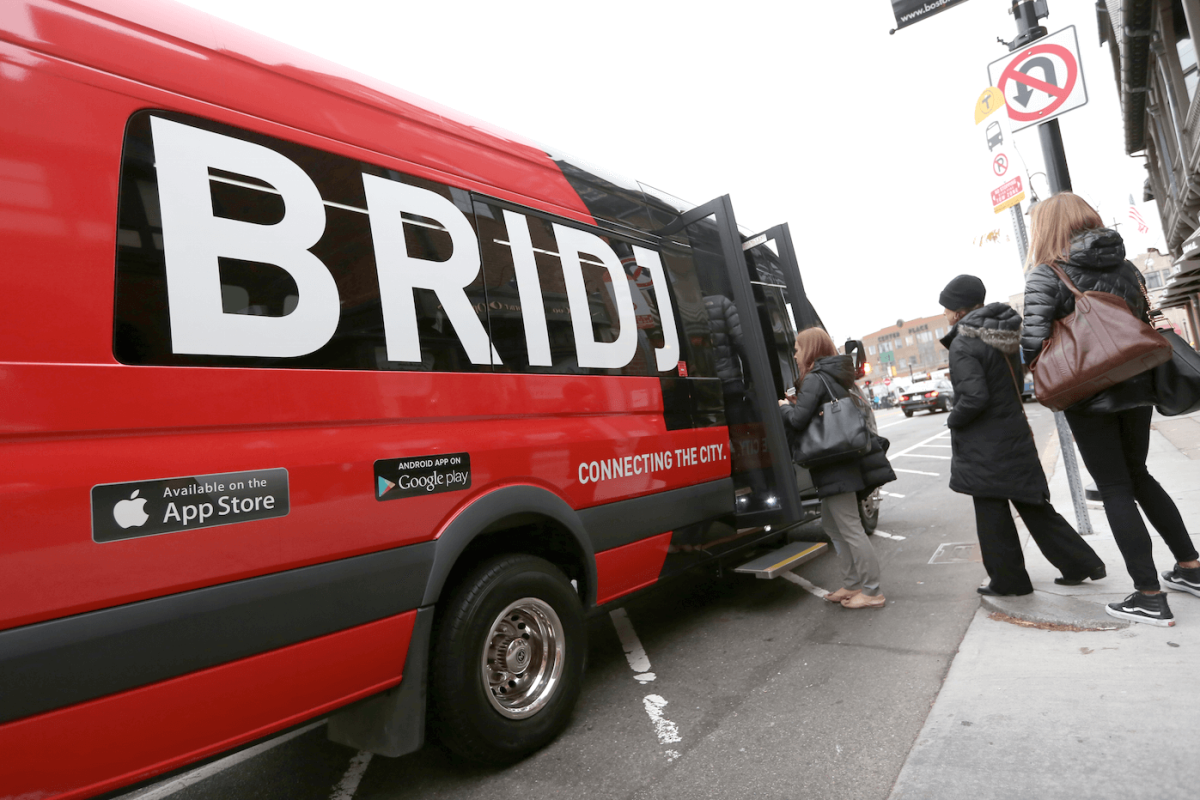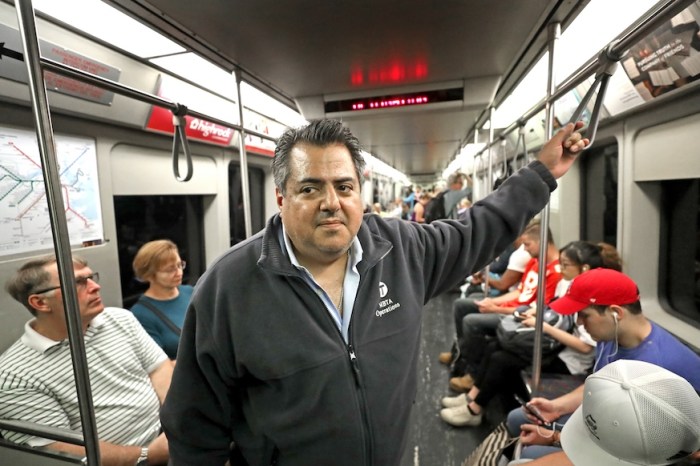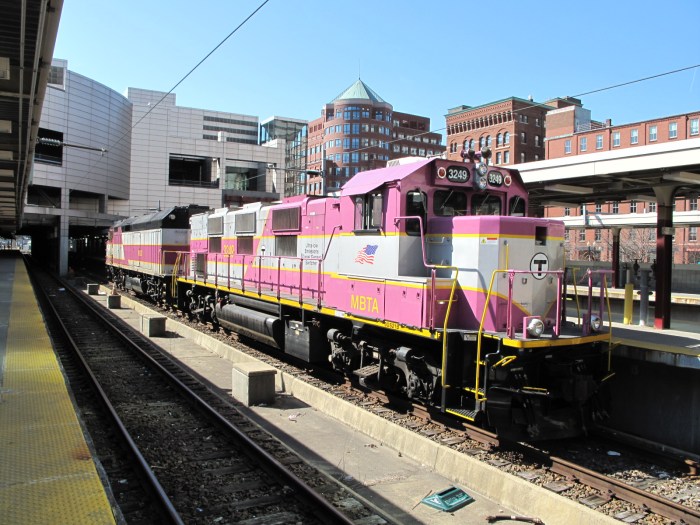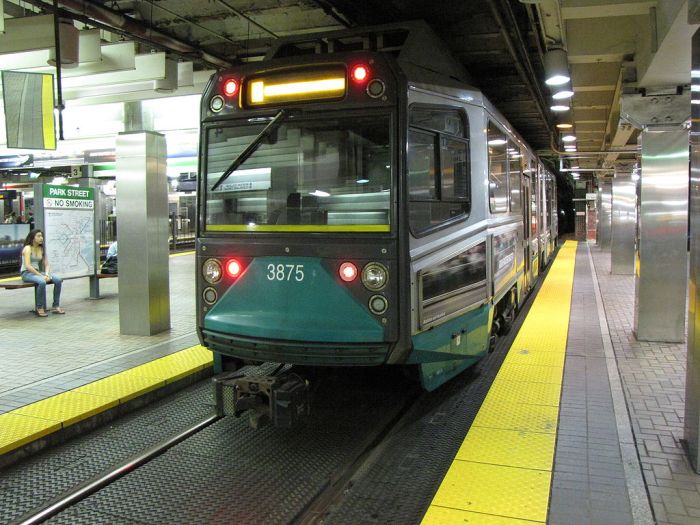It was Monday morning in Coolidge Corner just after 8 a.m. and the Bridj vans were zipping by. Every five minutes or so, another 14-passenger van pulled over — using a Harvard Street bus stop as a pick-up location — and a half-dozen smartphone-toting commuters piled in, nestling into comfy black leather seats, ordered on-demand. This being rush hour, they paid on the pricier side of the $3-6 fares Bridj charges its riders. On this morning, one particular Bridj van, a sparkling, 6-month-old Ford Transition, was packed with youngish passengers headed to jobs in the Financial District or the Seaport. Christmas music tinkled quiet but crystal clear through Jensen speakers. There was Wi-Fi. A year-and-a-half into Bridj’s experiment in what’s been billed as a slightly more expensive, but more efficient tech-driven alternative to the MBTA, many commuters now take the more upscale Bridj every day, never having to set foot on a bus or a train. But now, in Boston and beyond, the startup is eying opportunities not to compete with public transportation, but to become public transportation – or at least become part of it. “We want to work with cities and not be antagonistic, but be kind of another option for people,” a Bridj project manager and one of the company’s original employees told Metro. “We think we have a good system. If we can make cities more efficient that benefits everyone.” RELATED: Startups Bridj, Weft helping move people, things along in Boston At a markup that spans a few dollars to a few cents, Bridj gives riders the option of booking trips in advance and bypassing the T, in some cases cutting their commute time in half. In doing so, Andersen said, the company acts as a pressure relief valve on the most popular routes during times when trains and buses are most crowded, keeping a segment of workers off the road who might otherwise drive their own cars. Andersen said he couldn’t divulge how many people use Bridj, or how many vans it operates. But on the surface the service seems to be rapidly expanding— to meet demand outside what it can supply with its growing fleet of branded vans, it’s started contracting out limo services and slapping Bridj magnets on their sides. Bridj, which also operates in Washington,D.C.,serves three main areas around the city —parts of Brookline, Cambridge and downtown. It plans toexpand to Somerville in early 2016 and offer citywide coverage “as soon as possible,” Andersen said. He said Bridj could actually boost ridership on the T, by giving commuters a dependable lift between their T station and their final stop — a solution to the so-called “last mile problem” that he said keeps people from using public transit. “We see ourselves as filing the gaps in the existing public transportation infrastructure,” Andersen said, adding, “We’re all about multimodality.”
The startup,among the newest in the ride-sharing scene,has been figuring into conversations about public-private partnerships.
At a recent MBTA meeting on scaling back service on The Ride, the heavily subsidized door-to-door service for disabled riders, CEO Matthew George showed up to encourage the T’s oversight board to keep Bridj in mind as a cheaper alternative. The T piloted a taxi subsidy program this year, which officials have said could expand to companies like Uber, Lyft and, potentially, Bridj.
Ride-sharing has also been name-checked in recent talks about how, for example, Boston might replace its late-night service.
Some board members have even suggested T stops like South Station might benefit by reserving space for Bridj vans.
“Everyone is open to looking outside the box and seeing what innovation we can pursue,” said MBTA fiscal board member Monica Tibbits-Nutt in an interview.
RELATED: Maybe all MBTA trains should be driverless: expert
Outside the city, Bridj’s globetrotting CEO has been pitching his tech-fueled transit ideas at conferences and municipal boardrooms. This week, Andersen said, George was talking with an undisclosed Midwestern city about a deal that would, for the first time ever, fold Bridj entirely into the regional transit agency, that city’s equivalent of the MBTA. Back at home, Massachusetts’ transit community has been cautiously watching Bridj’s rise. T-watchers who spoke to Metro said they were wary of a service that up to now has been serving only the most profitable routes, and primarily wealthier commuters. “They’re in the business of making money. I’m not against that. I’m not against Bridj. I think, more power to them,” said James Aloisi, a former state transportation secretary and current contributor to Commonwealth Magazine, in an interview with Metro. But, he said, “In order for the T to work, you need people from across income levels taking it.” James O’Brien, president of the T’s biggest labor group the Boston Carmen’s Union, not surprisingly, said he was “opposed to any privatization” of any kind, including via Bridj.
Others are more open to the company, if skeptical about its public sector ambitions.
“We know that’s part of the future. … They are absolutely part of the mix,” said Josh Ostroff, partnerships director for Transportation for Massachusetts. But, he added, “We need to keep the focus on customers for whom public transit is a necessity and not just a choice.” RELATED: TheMBTA’s late-night service is in trouble
 ‘Ghost Train’ Twitter account pokes fun at MBTA scare
‘Ghost Train’ Twitter account pokes fun at MBTA scare
Boston’s Bridj eyeing place in public transit’s future

NICOLAUS CZARNECKI/METRO


















